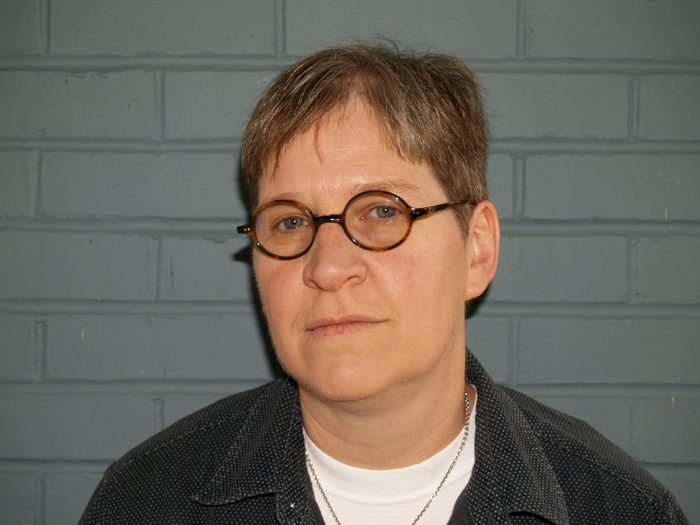N. Sigafoos discusses her novel, Dear Violet: Letter from a Desert Grave, the Iraq war and “Don’t Ask, Don’t Tell.”
Unwilling to let mainstream publishing’s lack of interest dampen their enthusiasm, N. Sigafoos and her partner started their own company, Sigafoos & Witcher Publishing, to publish her book, Dear Violet: Letter from a Desert Grave. An open love letter from an army private killed in Iraq, Dear Violet confronts not only the current Iraq War, but also the repercussions of “Don’t Ask, Don’t Tell” and the foster care system.
So, is this your first published novel?
I have been writing my whole life. I have a closet full of manuscripts. I felt so strongly about this that my partner and I created the publishing entity to get it into the world.
Are you working on the next one?
Yes, a sequel. It is the journal of Violet as she rides the plane to relocate in Paris, a summary of her life’s experience before she starts a new chapter.
What was your drive for writing Dear Violet?
I truly felt that a voice came inside my head, and had a message that needed to come out. I really felt a connection with Charlie, and her voice. I also am an artist who devotes her time to images of peace, so it wove into my visual work. My mother, who died in 1978, was a housewife peace activist who worked very hard on peace issues and the ERA, and still had my dad’s shirts ironed every day. Much of my passion is carrying out her unfinished work. Losing her defined who I am.
So what do you want readers to take away from the story?
I am very interested in the spirit and how it continues to exist on another plane. I believe that love is stronger than death. I wanted readers to see the sacred connection of two women and embrace their love as much as any love is valued. Also wanted to show how lousy it is for queer people who have partners in the service under “Don’t Ask, Don’t Tell.”
What other aspects of the story mirror your life?
I had wonderful parents and an idyllic childhood, so my life doesn’t mirror Charlie’s. But, I am androgynous and have some physical similarities to hers. Also, my partner and I got married in Portland, where I set their marriage.
Did you have to do much research into the foster care system? the military?
I have been a psychotherapist in private practice for the past 11 years. I have been involved in my local foster care system, helping to make better placements for gay kids. The research on the military was done through the internet and my proximity to Ft. Lewis. There is a statistic that 30 percent of all female soldiers are raped, or rape is attempted. This is epidemic in the female soldier’s experience. If you want to look into an eerily similar story, research Ciara Durkin’s death in Afghanistan.
You’re unafraid to confront the Vietnam War, the tsunami in Thailand, starvation in Africa, the foster care system…
Yes, and war as a solution.
How’s that?
I think that we have evolved as human beings in so many ways, yet we still use violence as a way to deal with conflict. What if, just once, we responded to violence with humanitarian aid, giving the people who have villianized us a different view? What if we concentrated on medical aid, clean water, true help? Would there be less terror? I feel that we need to try it to find out.
Do you express these views in your art?
My most recent series was peace sign images made from old postage stamps (collage) you can see them by Googling me and looking on my ImageKind page.
In the story, you use “film clips.” what was the purpose of them?
I imagine that in the spirit world, people can conjure up scenes from the past or future. It just seemed to be a good visual to call them film clips.
The book, though titled Dear Violet, starts with “To Whom It May Concern.” Why is that?
The entire book is a letter from Charlie, written through the writer, so that it will eventually end up with Violet. At the end, when Violet finally gets hold of the book, then she finds out what happened. The concept is that Charlie had to go through the writer because Violet was too depressed to receive her message. Because the whole concept is based on a guess at communicating with the dead, there’s no solid answers.
Who is your ideal reader?
It’s been an interesting experience, because I’ve talked to peace activists about [the book], lesbians, liberal-minded people in general, and people who believe in a spiritual realm. These are the folks who show up at my readings. But I’ve also had some conservative readers who have read it and contacted me afterwards. Also, I have written a screenplay adaptation of Dear Violet and I’m shopping it around. I am looking for influential people who believe in the message of Dear Violet, and who have the connections to bring it to the screen.
